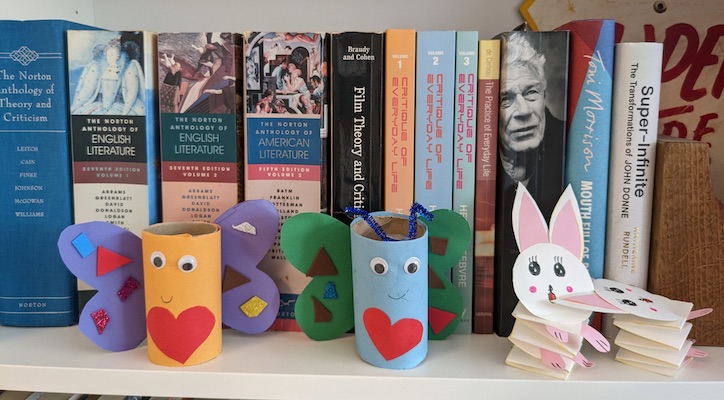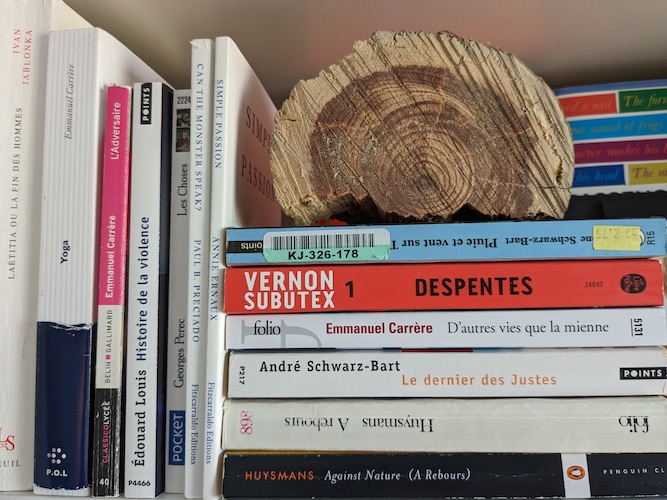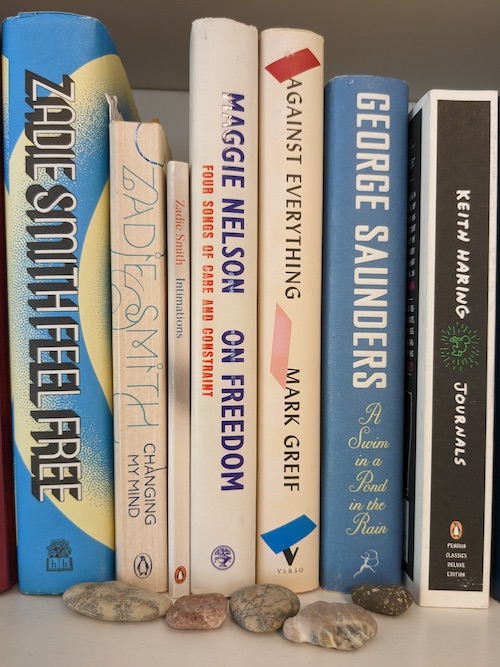Deliberate disorder and mixing it up
by Matt Lloyd-Rose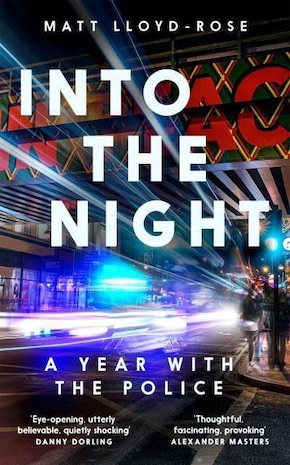
Matt Lloyd-Rose’s timely and penetrating account of a year spent as a special constable Into the Night is as eye-opening as it is fascinating. Patrolling the streets of an area of South London, Matt spends his Friday nights with the Met Police witnessing the best and the worst of law enforcement and of society. He raises very interesting questions about the role of the police. Are they crime busters, mental health workers, social workers or all three and more? Why, despite decades of declared crackdowns, is the Met still riddled with institutional racism and misogyny, coupled with cynicism and disillusionment? A thought-provoking examination of the Met and policing in general, and its place in our society and communities.
—
Tell us about the bookshelves in your home.
I’m currently living in Cyprus, two thousand miles from most of my books. But I brought several boxloads with me, prioritising books I hadn’t read. It was a wrench – but it’s exciting to see whole rows of unknown spines and starting to work through them. I allow my bookshelves to get messy – I like them to have an unruly, organic feel: books mixing with papers, pictures, stationery, Post-its, knick-knacks and stacks of my completed diaries. My pickled frog Gavin normally has pride of place, but he stayed in the UK as he doesn’t travel well.
My books are organised by theme. Some are clear-cut (poetry, theory, diaries) and some are more instinctive: lyrical non-fiction writers who just seem to belong together; or books concerned with interconnecting social issues; or my section of ‘books that contain the world’, encyclopaedic texts like Sei Shōnagon’s Pillow Book or Moby-Dick or Montaigne’s essays.
Which books are your most recent bookshelf additions?
My book Into the Night tackles serious issues, but with a lyrical, essayistic voice – looking to writers like Maggie Nelson, Claudia Rankine and Alexander Masters for inspiration. I’ve felt for a long time that there isn’t enough creative non-fiction exploring our most complex social challenges and giving us the imaginative resources to address them. New additions to my bookshelf tend to be works that write into this space, most recently Orwell’s Roses by Rebecca Solnit, A Fortunate Woman by Polly Morland and Manorism by Yomi Sode.
Do you judge people by their bookshelves?
Whenever I visit someone’s home, I gravitate towards their bookshelves – not to pass judgement on the quality and depth of their soul, but in the hope of spotting shared passions and avenues for conversation.
Which is your most treasured book?
I recently bought two signed John Berger books. His work is a big inspiration and I enjoy knowing there are books in my room that have been in his hands, even if only for a moment.
What do your bookshelves say about you?
A lot of the books on my shelves have a strong ethical dimension, whilst still being mysterious, irreducible works of art. They hold and illuminate complexity, rather than serving up simplistic solutions. I think my bookshelves reveal my appetite for sitting with complexity, really getting inside knotty issues, as well as my faith in the deep importance of literature for expanding our possibilities of thought and action.
What’s the oldest book on your shelf?
I have a non-valuable, but still fairly early copy of Jacob’s Room by Virginia Woolf. I liked the idea of owning a copy printed while she and Leonard were still running the Hogarth Press.
Do you rearrange your bookshelves often – and where do your replaced books go?
I tend to cycle the books from one bookshelf to another. I keep the books I want closest to hand on a tall white bookshelf in my study, refreshing the selection periodically. The other books are on shelves in the living room, competing for space with my children’s toys and craft materials.
Do you have any books from your childhood on your shelf?
My children are starting to read the books I still have from childhood – the Usborne Young Puzzles books in particular – and I’m finding it moving and uncanny to see these books, which have lain dormant for two decades, come back to life.
Book lender, book giver or book borrower?
I’m a book giver. I’ve stopped lending books; I make so many notes in books that I don’t dare let them out of the house. The same habit makes me a bad borrower of books; I often scribble so much I have to buy the lender a fresh copy.
Whose bookshelves are you most curious about?
My favourite living writer is Teju Cole. His essay collections Known and Strange Things and Black Paper have introduced me to so much art, literature, film and music I now love. I suspect I could pass happy hours with his bookshelves.
Introduced and compiled by Sonia Weir
Bookshelves by Matt Lloyd-Rose and family
—
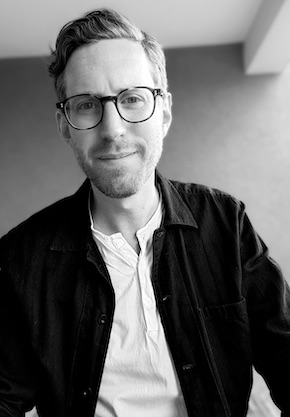
Matt Lloyd-Rose has worked as a carer, primary school teacher, police officer, and in leadership roles across the charity and social sectors. He is the author of The Character Conundrum: How to develop confidence, independence and resilience in the classroom, and co-author, with Henry Eliot, of Curiocity: An Alternative A to Z of London. He lives in South London with his wife and two young children. Into the Night is published by Picador in hardback, eBook and audio download.
Read more
mattlloydrose.com
@picadorbooks
Sonia Weir is a contributing editor to Bookanista. She started the Ultimate Reads and Recommendations Facebook group in December 2018, which now has over 700 members from all over the world. The group is inclusive and aimed at every reader, no matter the books, authors or genre.
Ultimate Reads and Recommendations
Instagram @soniaweir
Twitter @soniaweir
